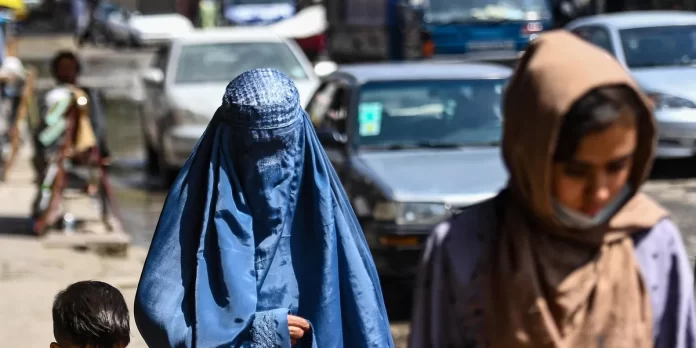Afghanistan is suffering from multi-dimensional problems, including humanitarian, economic, and political crises, but women and girls face a more dreadful situation. The statistics reveal that women’s presence in parliament has decreased from 28% to 0%, their representation in the public service has decreased from 30% to 0%, and the number of girls enrolled in school is now reduced from 4,000,000 to only 1,500,000.
“I don’t understand how people sleep and don’t wake up in rage over the fact that in 2022 the Afghan women are fighting for their right to education, which is a basic human right!”, says Sehar Fetrat, an Afghan activist and associate researcher at Human Rights Watch (HRW).
To this date, Afghan women are struggling to have the right to education, and in Taliban-controlled Afghanistan, this seems to be an unattainable dream.
“Every day there is at least one or two women who commit suicide for the lack of opportunity, mental health, and pressure they receive. The fact that girls as young as nine years old are being sold, not only because of economic pressure but because there is no hope for them, for their family, it is not normal”, said Fawzia Koofi, former deputy speaker of the Afghan Parliament, while addressing the UN Human Rights Council on July 1, 2022.
The lack of opportunity and ailing mental health is taking a terrible toll on Afghan women. While activists like Fawzia Koofi and others advocate for the agency of Afghan women, the situation back home is deteriorating day by day.
Critics say that the Taliban ‘almost’ missed their chance to be recognized.
“They (the Taliban) lost a wonderful opportunity. In March, about 10 to 12 nations were seriously considering recognizing their authority “According to a top Pakistani official participating in the process. According to the official, who requested anonymity to speak to The Express Tribune, those nations opted against recognizing the Taliban because they did not fulfill some of their commitments, particularly on girls’ education.
The Taliban’s return sparked a debate around the world about whether the religiously-driven group would stick to its popular, hard-headed approach of not letting the girls pursue education as they did from 1996-2000, or being ‘Taliban 2.0’, they would show some pliability and ensure some agency for women.
So far, the Taliban have only come up with one excuse for the closure of girls’ schools: We are dealing with multiple issues and things take time.
Renowned writer and senior journalist based in Kabul, Abdul Wahid Wahid, says that remaining silent towards such a mentality inspired by the Stone Age will not only plunge future generations of the country into the darkness of ignorance but will also have a devastating effect on the Afghan society, and this headstrongness would have adverse effects on the future dignity of the religious scholars in our country.
Afghanistan is suffering from multi-dimensional problems, including humanitarian, economic, and political crises, but women and girls face a more dreadful situation. The statistics reveal that women’s presence in parliament has decreased from 28% to 0%, their representation in the public service has decreased from 30% to 0%, and the number of girls enrolled in school is now reduced from 4,000,000 to only 1,500,000.
Since August 15, 2021, the Taliban have resorted to drastic steps, such as abolishing the ministry of women’s development and substituting it with the Ministry for Vice and Virtue. Dismantling institutions that are designed to provide the barest necessities for a disproportionately oppressed gender group is nothing more than a deliberate pushback against Afghan women.
A month after seizing control of the country, on September 18, 2021, the Taliban ordered the reopening of secondary schools for boys but made no mention of secondary schools for girls. This was taken to mean that secondary education for girls was forbidden. Taliban leaders bowed to communal pressure and reopened girls’ secondary schools in a few areas, although the great majority of these institutions remain closed.
According to Human Rights Watch, a global watchdog for human rights, Afghan girls in grades 6-12 have already missed school for 300 days since August 15, 2021. How long this would continue, one cannot predict.
Are the Taliban using the closure of girls’ schools as bait for international recognition? If so, then for how long? If the Taliban continue to hold their draconian position in the upcoming months and years, as it appears they will, the UN and the international community need to have a clear plan of action to deal with them.
From what appears on the surface now, the Taliban are indeed deliberately not reopening the girls’ schools for grades 6-12. They might be taking their time to coerce the international community to recognize the Taliban government in Afghanistan. But, in all this, the loss is of Afghan women and the future generations of Afghanistan.




